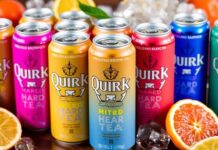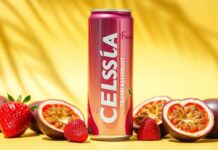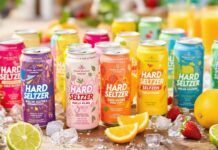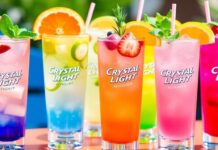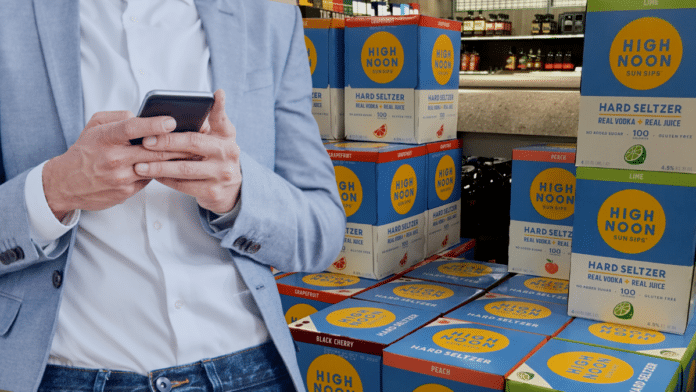As alcoholic beverage commerce and marketing strategies continue to go digital, Our Cart has stream-lined a way for brands to drive product trial in retail stores, bridging the gap between online presence and in-store purchases.
In an exclusive interview with Hard Seltzer News, founder and CEO of Our Cart, Danny Rejzner, spoke about the company’s services and how they help new brands get picked up in-store.
“When you try to introduce a new product, [the] number one challenge is trial,” said Rejzner. “Obviously, [the] product needs to be great, and you want that repeat purchase.”
Their new solution, called Chop, is tailored around initial awareness for new consumer packaged goods, including hard seltzers and RTD alcoholic beverages.
“It’s a super easy to integrate plugin into the brand’s own website,” Rejzner explained. “Any traffic that comes [from] any of their ongoing marketing activities, CRM (customer relationship management) or if they have a mailing list — whichever activity that is ongoing — they can essentially follow through their website to create trial, and the offer is typically a kind of a try-for-free offer.”
Customers using a rebate offer can purchase the participating product anywhere they choose. Our Cart then validates the purchase with their receipt capture technology and sends the rebate to the customer instantly via PayPal or Amazon. During the process, Our Cart also asks for and then collects consumers’ feedback and reviews.
“As part of the process, there’s also a very — we feel — very valuable byproduct of being able to ask the consumers questions about the product to get feedback, reviews and really to create that kind of bidirectional connection,” said Rejzner. “It’s not only about the consumer discovering the brand, but we feel it’s also about the brand discovering the consumer.”
Clayton Baum, Our Cart’s Head of U.S. Business Development and Sales, also spoke to Hard Seltzer News and discussed patterns in customers’ preferred brands. Trial offers can encourage brand-loyal customers to try new products, as rebates provide consumers a way to try a new product without committing to a full purchase. No money ultimately spent means no risk of wasting money on a product the consumer may not enjoy.
“In 2019, Statistica said that 40% of all alcoholic beverage consumers are drinking their preferred brand and have been doing so for 10-plus years, so clearly there’s loyalty within the marketplace,” Baum said.
Baum asserted that just because a brand is preferred, doesn’t mean a consumer can’t be persuaded to try something new. This is especially true for Millennial shoppers, according to data.
“Half of Boomers know which brand they intend to buy before they walk in the store while less than 25% of millennials do,” said Baum. “There’s absolutely loyalty within the category…but, that doesn’t mean that you cannot convert somebody and get them to pick you up.”
Another reason new brands might want to focus trial efforts on Millennials — they are more active on social media and more likely to interact with online marketing campaigns. In a time when pandemic shut-downs have kept people home and driven up e-commerce, social media and other online marketing strategies have become more valuable than ever.
“That’s the gist of what we’re doing out of the marketplace, helping brands drive that product trial based on the inspirational message that they’re giving, and then giving them all the backend mechanisms to execute that on their digital customer journey, on their assets,” Baum concluded.
- Podcast: New Realm’s Mitch Steele Talks Hard Seltzer - March 8, 2021
- Big Brands Bring Awareness with Publicity — in the Market or in the Courts - February 27, 2021
- Naked Seltzer Betters the Home Bar - February 26, 2021


